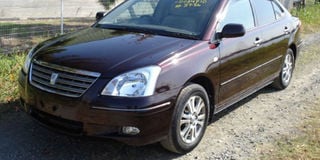Why does my Premio fail to accelerate in the morning?

Hello Paul, I drive a Toyota Premio 1.4cc. It has been performing well but of late it is failing to start, especially in the morning. I have to press the accelerator hard for it to move. The same happens when I slow down on humps. I have changed the oil but nothing has changed. What could be the problem? Lena
Hello Lena, an engine oil change may not resolve the poor engine performance problem your Toyota Premio is experiencing.
Ask your mechanic or provider to examine the components and systems that affect engine performance with particular emphasis on poor acceleration when the engine is cold. Start by examining the fuel and air intake systems.
As a routine, you will also ask the provider to check the ignition system, which is also crucial to engine performance. Inspect the fuel filter (confirm if it was replaced at the mandatory 100,000km service).
The air intake system is designed to monitor external temperature, especially during cold starts. This helps the engine management system to adjust upwards the engine idling revolutions by increasing the fuel air mixture for engine warming during cold start and idling.
If you are experiencing poor engine running after cold engine starts, then your technician has to examine the air cleaner condition, intake air temperature sensor (mass air flow sensor), intake hose for cracks or looseness and the throttle potentiometer for electronic faults or carbon induced sticking of the throttle valve.
The ignition system would cause severe misfire or failure to accelerate. Check condition of spark plugs or ignition coils. I noted that you did not mention misfire.
Hello Paul, my Toyota RAV4 delays to start and after two attempts, it drags before starting with a funny noise. We have replaced the battery but the fault persists. Please advise. Kate
Hello Kate, it sounds like you have a defective starter motor. This is the electric component which turns your engine and helps it to start when you turn the key.
It is powered by your car battery. The hesitation to start is usually attributed to a weak battery, a bad starter motor or occasionally, dirty or corroded circuits or terminals.
In your case, you have ruled out a bad battery by replacing the old one. I believe the terminals are clean and tight. You need a car mechanic or technician to inspect the starter motor performance with particular attention to the condition of its starter brushes.
There are usually four starter brushes, which run on a section of the commutator. The brushes act as contacts to help conduct electricity, which turns the starter motor and cranks the engine. These brushes wear out over time or are covered in soot.
They can be cleaned or replaced. Occasionally, a starter solenoid can fail, in which case you will replace the solenoid or starter motor if it is not available.
Hello Paul, my car’s brake pads overheat after driving for short distances. I have replaced brake pads, discs and calipers but the problem persists. Why? Ronald
Hello Ronald, a car’s brakes can overheat due to several reasons. Your mechanic may have started to tick the boxes and should complete the list. One of the common causes of brakes overheating is jamming or sticking brake caliper pistons. When caliper pistons jam, they lock brake pads onto the disc even when you are not braking.
Sometimes they cause a vehicle to swerve as one set of wheels brakes while another continues to move.
This can happen due to corrosion of caliper pistons or a failure of the hydraulic connectors to the caliper, hence jamming or sticking.
Whilst your mechanic may have replaced the caliper, the brake fluid lines should be inspected for kinking or restriction due to damage. The replacement brake caliper should be inspected for corrosion damage in case it is a used one.
Smoking brake pads and discs will sometimes be a result of leaking brake fluid hoses. These will leak brake fluid onto the hot brake discs and pads and start to burn as well as damage the pads.
Brake hoses should routinely be inspected and replaced where found worn out or on the verge of tearing. Overfilled brake fluid reservoirs can sometimes cause a leakage of brake fluid from the caliper pistons when you brake hard.
This will leak onto the disc and pads causing smoke or fire. Aged brake fluid will also cause over heating because its role of cooling the brake system is diminished with the aging brake fluid molecules.
Send sms: mycar (space) your comments and questions to 6933
Or email them to: [email protected]




